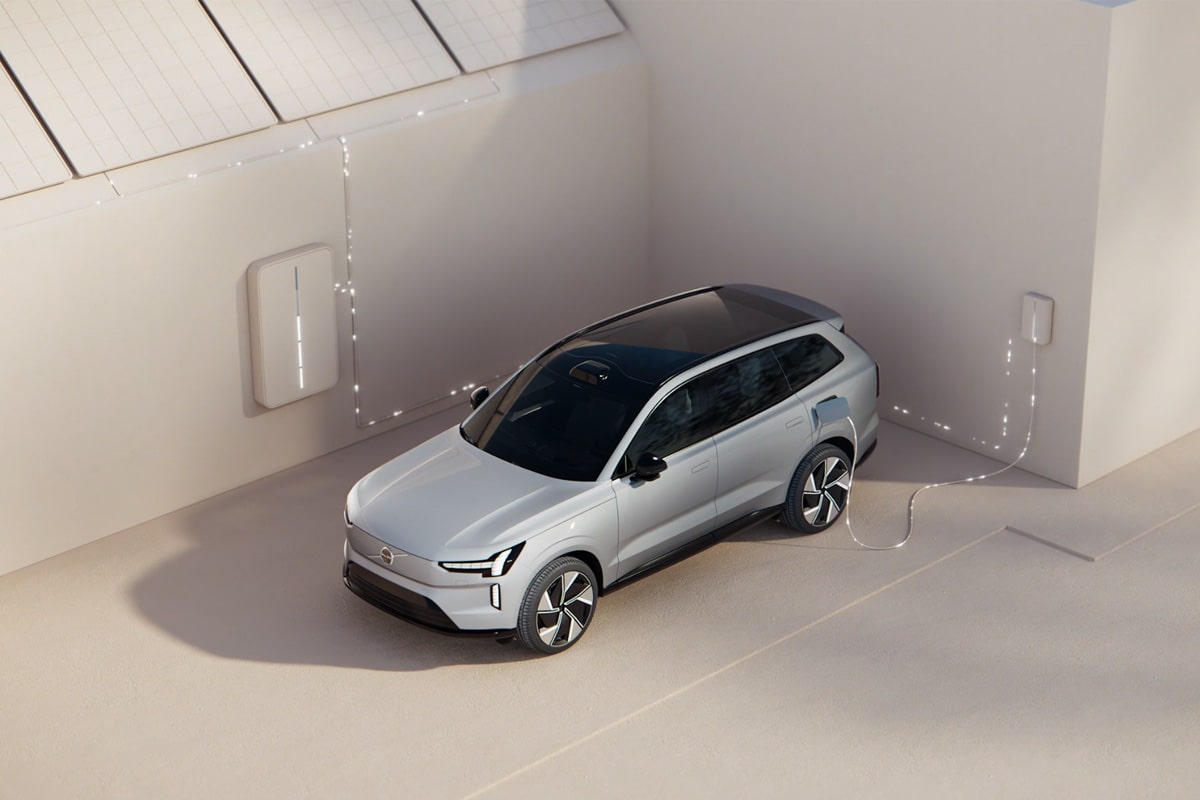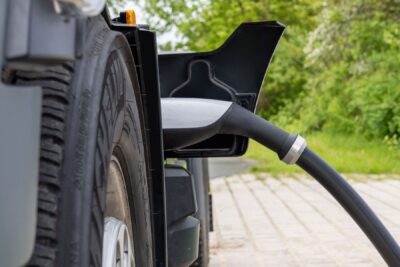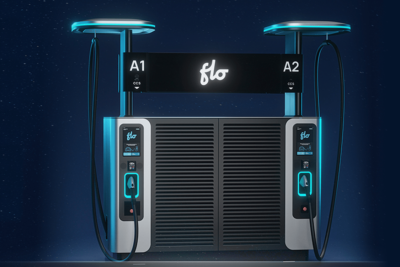Volvo Cars launches energy business
Volvo Cars has established a new business unit for energy-related products and services. Under the umbrella of ‘Volvo Cars Energy Solutions’, the carmaker bundles technology and services for a comprehensive electric car ecosystem. This includes bidirectional charging, for which the EX90 is the first Volvo model to have the necessary hardware and software.
Together with Gothenburg Energi Nät, the local energy grid operator in Volvo’s home town, the carmaker is now launching one of the first vehicle-to-grid pilot programmes. In the course of this, V2G technology will be integrated into the local energy grid and the domestic environment and tested by real customers.
According to earlier statements by Lutz Stiegler, Solution Manager Electric Propulsion at Volvo Cars, Volvo has left it open as to whether it will use AC or DC for bidirectional charging, but in the Gothenburg project a “low-cost wallbox with alternating current (AC) is used”. The reasoning is similar to Stiegler’s: Volvo uses AC here “to underline the suitability for everyday use and to accelerate the technical introduction”. DC wall box chargers may have technical advantages for bidirectional charging, but they are expensive and rare – from the Swedes’ point of view, this means that a test of suitability for everyday use and the rapid introduction are not possible to the desired extent.
As a project goal, Volvo states that it wants to promote the acceptance of network operators and show them the advantages of V2G. In addition, the project also functions as a test laboratory outside the company’s own research and development centres in order to try out new future technology.
Volvo expects that the brand’s electric cars delivered by the middle of the decade will have a cumulative battery capacity of around 50 gigawatt-hours. However, on an average trip in Europe, these electric vehicles consume less than 10 kWh per day, according to Volvo. 90 per cent of all daily journeys require no more than 20 kWh. This leaves enough battery capacity that can be used for other purposes.
“With bi-directional charging, you can use your car battery as an extra energy supply, for example, to provide power to your home, other electric devices or another electric Volvo car,” said Alexander Petrofski, the new head of Volvo Cars Energy Solutions. “The next step would be to enable this feature all around Sweden, and hopefully that will pave the way for even broader acceptance of similar charging and energy storage services around Europe.”





0 Comments